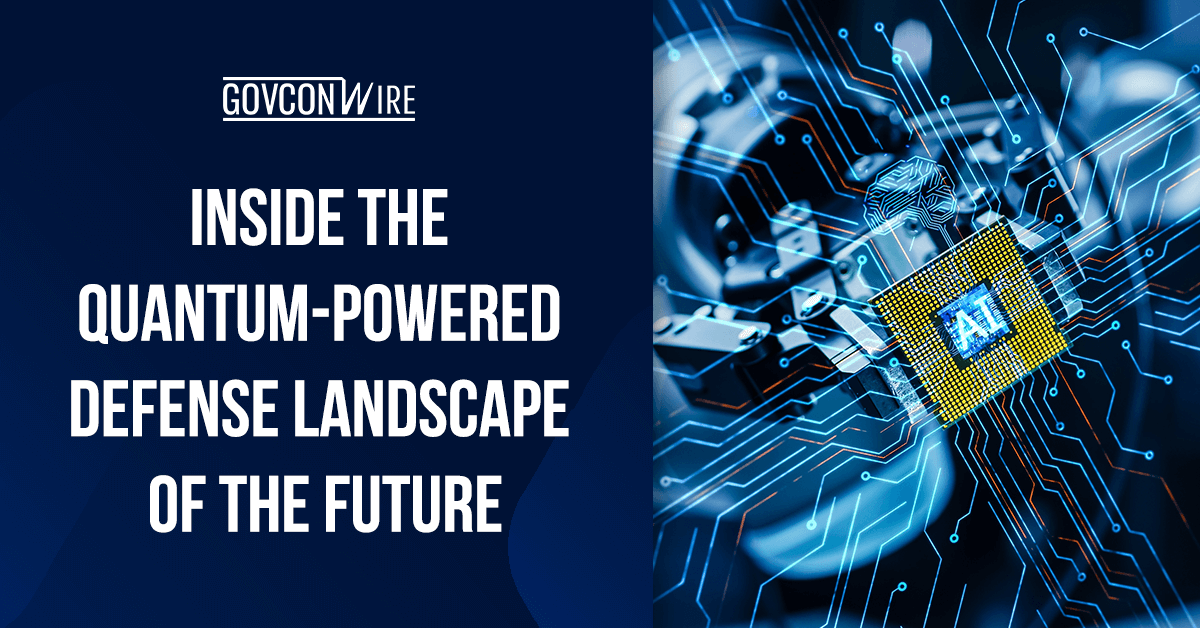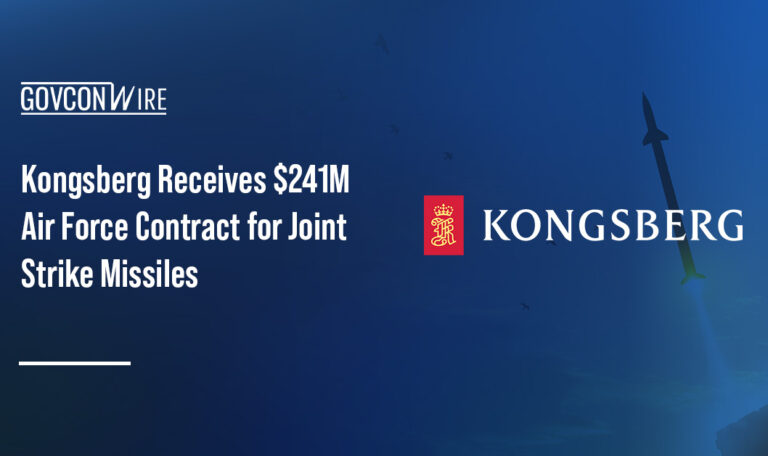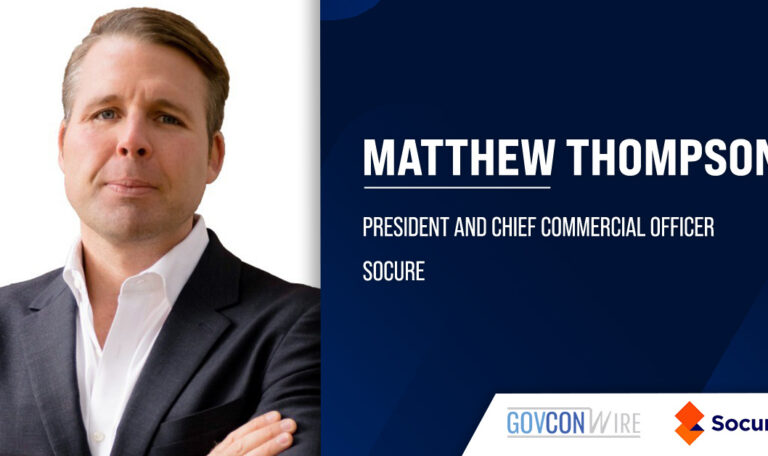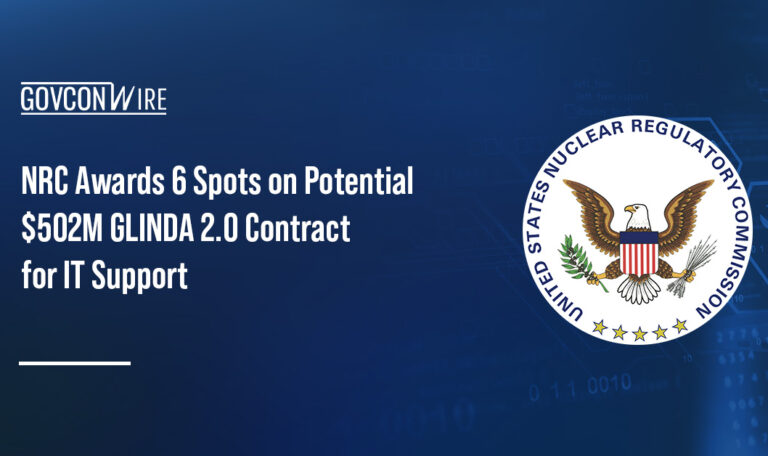Quantum computing is no longer just a theoretical pursuit or the domain of research labs. It has rapidly emerged as a transformative technology poised to revolutionize industries around the globe. Within the defense sector, its potential is both astounding and imperative. Quantum’s applications in national security promise to reshape operations, decision-making and strategies. But what does this mean for the future of defense? This article explores the quantum-powered defense landscape, offering a deep dive into its mechanisms and impact.

Hear directly from quantum experts on what’s next for the emerging field at the 2025 Defense R&D Summit hosted by the Potomac Officers Club on Jan. 23. Don’t miss this program packed with insights into defense technology innovation. Register for the 2025 Defense R&D Summit to join the conversation.
What Is Quantum?
At its core, quantum computing relies on the principles of quantum mechanics — phenomena that operate at an atomic and subatomic scale. Unlike classical computers, which encode information in binary bits as 0s and 1s, quantum computers leverage quantum bits, or qubits, which can exist simultaneously in multiple states — a concept known as superposition. This allows quantum systems to process vast amounts of information at exponential speeds compared to traditional systems.
Another foundational element of quantum computing is entanglement, where qubits remain interconnected regardless of distance. This principle enables nearly instantaneous communication and computation across systems.
From solving complex optimization problems to securing communications through quantum cryptography, quantum computing holds immense promise. However, its integration into sectors like defense demands careful planning and strategic implementation.
When Will We See Quantum Effects?
The question is not “if” but “when” quantum computing will begin to make its mark on global defense systems. Experts estimate that quantum computing technology will achieve broader utility within the next decade. Key defense applications, such as quantum sensing and quantum encryption, have already demonstrated promise in controlled environments and are nearing practical deployment.
For instance, several leading programs and initiatives such as DARPA’s Quantum Benchmarking Initiative seek to verify the readiness and scope of quantum systems by 2033. Parallel efforts like the Defense Innovation Unit’s quantum sensing programs and atomic navigation systems are pushing quantum technologies toward real-world viability in the near term.
While many of these technologies are still in development, early implementations — such as quantum-powered navigation to mitigate GPS vulnerabilities — point towards tangible progress.
Defense leaders understand that preparing for quantum’s disruptive potential is no longer optional. The adoption and application of quantum tools will define the military advantage in the coming decades.
Quantum Use Cases on the Battlefield
Quantum computing’s most immediate applications in defense span several critical functions, from battlefield tactics to logistics and threat detection. Here’s how quantum technology is reshaping the landscape:
Secure Communications and Cryptography
Quantum encryption promises virtually unbreakable communication channels. Quantum key distribution, or QKD, leverages the principles of entanglement to ensure that interception attempts disrupt the system, alerting users to potential security breaches. This technology is a game-changer for ensuring secure command and control in volatile regions.
Alternative Positioning, Navigation and Timing (PNT)
Quantum sensors offer a reliable alternative to GPS, which is vulnerable to jamming or spoofing, especially with the rise of electronic warfare in recent years. With quantum sensing, military assets can maintain accurate positioning and navigation even in contested environments. DARPA’s RoQS program is focused on developing resilient quantum sensors capable of performing effectively even on dynamic military platforms.
Logistics Optimization
Quantum systems excel in solving complex logistical problems regarding resource allocation and route optimization. On the battlefield, this could streamline the movement of supplies, personnel and equipment, enhancing operational efficiency.
Improved Intelligence, Surveillance and Reconnaissance (ISR)
Quantum sensors can detect otherwise invisible variables — like subtle magnetic or gravitational anomalies — that traditional methods miss. Such advancements could revolutionize surveillance, enabling the early detection of stealth submarines or concealed threats.
Threat Mitigation Through Data Analysis
Quantum computers can rapidly process intelligence from multiple sources, identifying threats and anomalies faster and more accurately. This enhanced analytical capability could turn the tide in high-stakes military engagements.
The DOD’s Quantum Efforts
Recognizing the transformational potential of quantum technology, the Department of Defense is launching robust initiatives to incorporate quantum capabilities into its operations. Here are some of the most notable efforts:
Advancing Post-Quantum Security
The emergence of quantum technology presents a dual reality — it not only enhances security but also poses new threats. Sean Brehm, founder of CrowdPoint Technologies, emphasized this during a recent interview with Yahoo Finance. He argued that existing systems cannot withstand the computational power of a quantum query, which could overwhelm traditional defenses without even being an overt attack.
“Unless the Department of Defense is looking at how they can secure data more efficiently offline and how to provide post-quantum security today, they can’t advance beyond the defensive position,” Brehm warned.
To address this vulnerability, the DOD is prioritizing the adoption of post-quantum cryptographic infrastructure, ensuring that classified data remains secure in an era of advancing quantum threats.
Quantum Programs Gaining Momentum
John Burke, principal director of quantum science for the Office of the Undersecretary of Defense for Research and Engineering, has highlighted the imminent launch of quantum initiatives like the DAQAR program, focused on testing quantum computing heuristics. The goal of the effort is to explore near-term applications while laying the groundwork for long-term use cases. These initiatives are bolstered by increased funding, as seen in legislative directives like the 2024 NDAA.
Quantum Sensing at the Defense Innovation Unit
Quantum sensing is arguably the most promising near-term application for the DOD. DARPA’s quantum sensing program, RoQS, aims to create rugged sensors that maintain performance even under harsh military conditions. These sensors, already being integrated into space-qualified systems, could enhance ISR capabilities, enabling military forces to detect submarines, nuclear materials and other concealed threats with unprecedented precision.
Committing Resources for the Future
To further establish quantum supremacy in defense, the DOD has committed over $100 million to next-generation quantum technologies, ranging from atomic clocks to magnetometers and quantum-resistant software applications. These investments underscore a broader commitment to ensuring America’s dominance in this pivotal field.
What Lies Ahead for Quantum in Defense
Quantum technology is poised to redefine the global balance of power. While current developments signify progress, numerous challenges remain. These include overcoming issues with the scalability of quantum systems, addressing the limitations of cryogenic cooling technology and building a quantum-proficient workforce.
The DOD is tackling these systemic issues with a “full-spectrum” approach, emphasizing not only cutting-edge research but also partnerships with academia, private sector leaders and global allies.
The road to full quantum integration into defense may not be linear, but incremental advances signal a promising future. Whether used for defensive strategies, enhanced offensive capabilities or revolutionary logistic solutions, quantum technology will undoubtedly play a pivotal role in shaping the warfare landscape of tomorrow.
Preparing for the Quantum Era
The defense landscape, like many other sectors, is on the cusp of a quantum revolution. However, understanding and preparing for these advancements requires proactive measures. Leaders in defense and government must act now to ensure readiness and technological superiority.
For government officials, defense technologists and industry partners, this is a call to leverage quantum technology as a strategic asset. Collaboration will be critical in making quantum resources accessible, practical and effective for national security.
The revolution has already begun — are you ready for what comes next? Dive into in-depth discussions about the future of quantum at the Potomac Officers Club’s 2025 Defense R&D Summit on Jan. 23.















